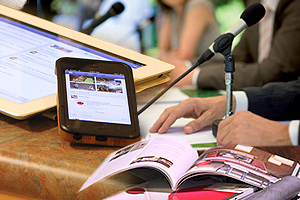Publish books for children and young adults

The aim of this course is to develop skills and knowledge of the book publishing processes and industry standards with a focus on children’s and young adult’s books and self-publishing.
The course is studied by distance learning. It requires around 100 hours of study.
You can start at any time to suit you and work at your own pace.
COURSE STRUCTURE AND CONTENT
There are ten lessons in this course, each requiring approximately 10 hours of work including reading, additional research, completing the set tasks and assignments.
The content of each of the ten lessons is as outlined below:
Lesson 1. The Publishing World (Writing for Children)
Children’s book genres
Self-publishing and the educational market
Developmental landmarks and their relationship to children’s publishing
Reading level assessments and their relationship to children’s publishing
Lesson 2. Publishing Procedures and Techniques
Stages of traditional publishing
Steps to finalising a manuscript
Types of editing
Illustrations and working with external illustrators
Page design
Picture book design
Typography
Lesson 3. Desktop Publishing (Print Versions of Children’s Books)
Defining desktop publishing
Layout and design for different book types: board books, picture books, chapter books and novels
Use of colour
Test runs for printing
Creating a dummy version of an illustrated text
Lesson 4. Defining e-publishing
Apps vs ebooks
Layout of Illustrated ebooks or Text-based ebooks
Working with audiobooks
Audiobooks for children
Accessibility and ebooks
Ebook file types
Lesson 5. Illustration 1: Introduction to Graphics in Children’s Fiction
The purpose of illustrations and graphics
Selecting a graphic or illustration design style
Types of books with graphics
Formatting textual elements
Working with a designer or illustrator: Preparing a brief and keeping the contract clear
Graphics and marketing
Lesson 6. Illustration 2: Introduction to Photography in Children’s Books
Working with photographs: Non-fiction, fiction and covers
What makes a good photo
Designing with photos
Principles of photographic composition
Creating effects
Lesson 7. Researching Material for Children’s & Young Adult’s Books
Researching for fiction: world building and time period, and gathering resources
Types of non-fiction texts for children and young adults
How to plan research
How to note take effectively
Author notes
Lesson 8. Marketing in Publishing (Children’s Books)
Book distributors
Marketing toward retailers
Theme marketing and special sales
Website and author platforms
Marketing toward the consumer: Reviews and interviews, book launches and talks, lectures, and readings
Lesson 9. Publishing: Ethics and the Law (Children’s Books)
Ethics and content creation
Sensitivity, cultural, and linguistic diversity
Content and ratings advisories
Plagiarism
Censorship and book banning
Copyright: Copyright notices, what does copyright protect and when a work can be legally used
Codes of ethics
Lesson 10. Problem Based Learning (PBL)
Plan the publication of a children’s book
Answer set discussion questions
Present a final report
Finding and Managing Intellectual Property

Publishers need content to publish - writing and illustrations.
It is easy to find people who want their work published, but it can be challenge to find content worth publishing, will make a profit, and which you can get rights to publish at a reasonable cost.
Publishers will sometimes only pay the writer or illustrator, after the work has been published and sales have been made. Sometimes writers will write for free; just for the honor of being published. If you want the best work from the best illustrators and writers though; you will need to pay, and you may need to pay a premium price, before publication.
Writers and illustrators might not be very good business people, though of course there are exceptions. Even those that have good business skills might not achieve the same quality of work if they are preoccupied with the business aspects of publishing, and are unable to focus on their work. Therefore, publishers and agents can be very helpful to writers and illustrators by taking over routine business and organisational tasks, freeing up writers to concentrate on producing better work.
If you want to publish books for children and adults, Publishing I is an excellent course to develop the skills and knowledge you need.